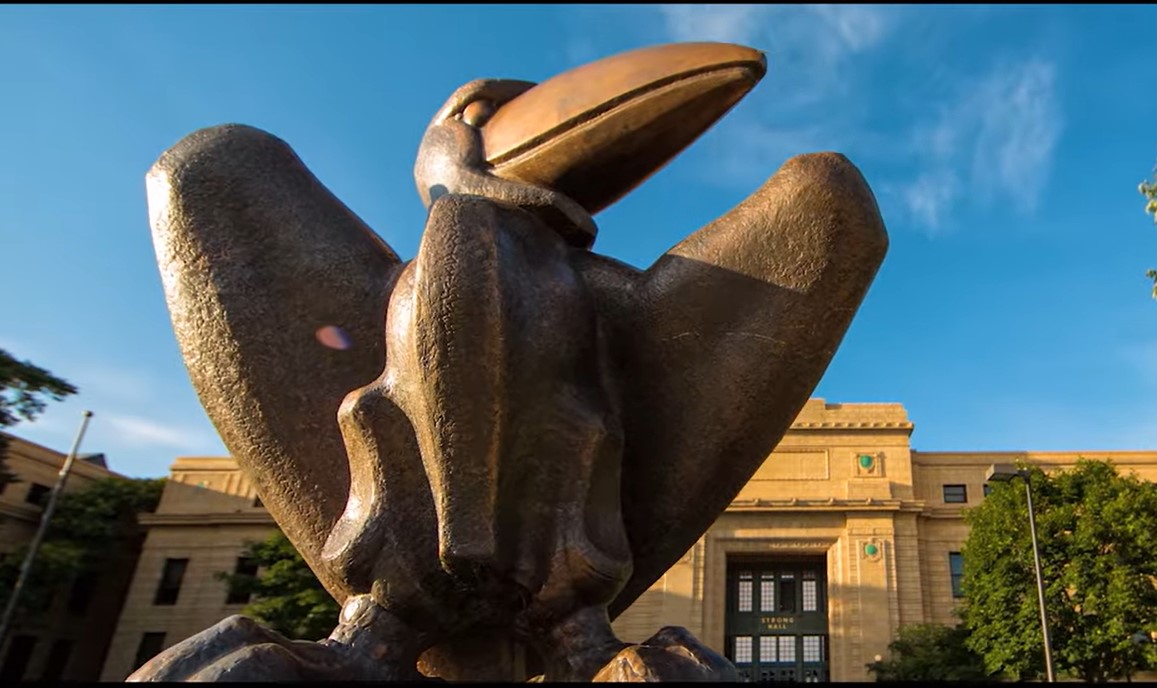Commentary: Big Tent Ideas
KRIS W. KOBACH: Here’s What Universities Should Do To Students And Staff Who Try To Silence Free Speech

(Screen Capture)
There was a time when college campuses were bastions of free speech and open discourse. Unfortunately, on many campuses that golden age is long gone. Where once universities and colleges served as the marketplace of ideas, they now are infested with radicalized students who want to silence any views different from their own.
The latest anti-free speech radicals are the worst the country has ever seen – the agitators supporting Hamas in the wake of the October 7 terrorist attacks on defenseless civilians in Israel.
Multiple universities have suffered antisemitic interference with free speech. Jewish students at Cooper Union in New York City had to lock themselves in a library out of fear of for their own safety. In another incident, antisemitic protesters at the University of California at Berkley violently shut down an event at which an Israeli lawyer was to speak.
My own state of Kansas has sadly experienced the antisemitic mob’s rage. Gal Cohen-Solal visited Kansas University to share a firsthand account of his experience during the October 7 massacre in Israel. Cohen-Solal, his wife, and their three kids hid in a saferoom for more than 30 hours as Hamas terrorists fired at them. It was a story that KU Students for Justice in Palestine didn’t want to hear. The disruptive student group interrupted Cohen-Solal’s speech multiple times before law enforcement removed them from the event. Thereafter, Students for Justice in Palestine praised the events’ protestors on social media, calling them “brave individuals…shouting down the illegal settler’s hateful speech until the cowardly Zionists had the protesters detained by police and escorted away.”
Kansas University handled the disturbance appropriately, removing the students who were trying to stop the speech. However, it appears that the university has yet to take disciplinary action against the protesters. Interrupting the speech violated the school’s student code, which disallows protests that “disrupt the operation of the institution.” The code also grants students and groups the right “to invite and hear any persons of their own choosing.” Hopefully, KU will move forward with disciplinary action.
Unfortunately, this isn’t the first time radical activists on KU’s campus have attempted to shut down disfavored speakers. In the fall of 2022, students and staff at the University of Kansas Law School attempted to block a speaker from Alliance Defending Freedom from giving a speech to the student Federalist Society group. When such protests attempting to silence speakers succeed or go unpunished, that can discourage student groups from attempting to host speakers who challenge the radical Left’s point of view; and it can chill future speakers from accepting any invitation to the campus.
When that happens and the opportunity to hear both sides disappears, KU students are worse off. And KU’s mission statement says of fostering “a rigorous culture of creative and scholarly investigation” is completely defeated.
Scholarly investigation and student opportunities to hear speakers aren’t the only victims when speech is silenced on college campuses. Democracy suffers, too. Freedom of speech is vital not just to our system of government but also to society at large, and colleges must do more to protect it. College administrators must make clear that students and staff who attempt to silence free speech will be swiftly and severely punished. Students who cannot abide by these simple rules should be suspended or expelled. And any involved students who are studying under a student visa should have their visas revoked.
If university administrators and the Kansas Board of Regents are unwilling to punish antisemitic radicals who seek to destroy free speech, Kansas legislators should consider delegating the enforcement of free speech policies to the Kansas Attorney General’s Office. We will vigorously defend all viewpoints. Radical mobs, regardless of their point of view, must never be allowed to dictate what can be spoken on a college campus.
Kris W. Kobach is the Attorney General of Kansas. He previously served as Kansas Secretary of State (2011-2019) and as a Professor of Constitutional Law at the University of Missouri – Kansas City School of Law (1996-2011).
The views and opinions expressed in this commentary are those of the author and do not reflect the official position of the Daily Caller News Foundation.
All content created by the Daily Caller News Foundation, an independent and nonpartisan newswire service, is available without charge to any legitimate news publisher that can provide a large audience. All republished articles must include our logo, our reporter’s byline and their DCNF affiliation. For any questions about our guidelines or partnering with us, please contact [email protected].

